A filter bubble occurs when algorithms show information based on a user’s past interests, limiting their exposure to different viewpoints.

(iii) How social media can impact your child’s well-being
While often highlighted for its negative impacts on children and youths, social media can also offer benefits if they are used in a healthy way, such as enriching learning experiences and enhancing family communication.
To harness such benefits, it is important for you to be aware of what your child is doing online, how they are using social media, and the reasons for their actions online. This helps you better support and encourage your child’s positive use of social media as well as intervene to address inappropriate behaviours if needed.
Read more about:
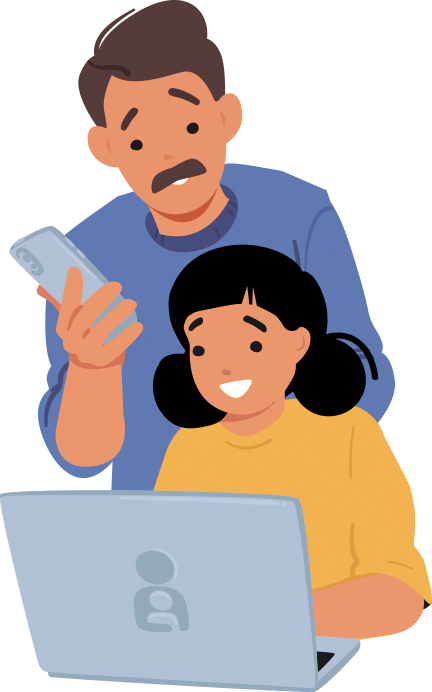
What are the potential benefits of using social media?
The use of social media can help your child to connect easily with their peers, and form friendships and relationships through sharing videos and photos in real time.
Some other ways social media can help youths of today meet their needs include:
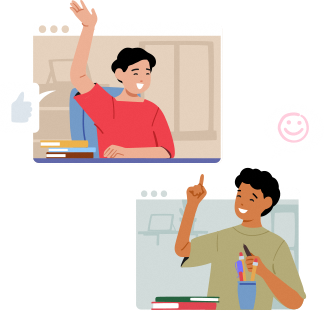

Social media can allow for connections regardless of distance, time, and even language, providing positive social and community support for youths who share common interests, hobbies, challenges, and experiences.
Online social support from peers can provide a buffer against stress as well as anxiety, while fostering social and emotional resilience. This is especially important for youths, who often seek social support and a sense of belonging.
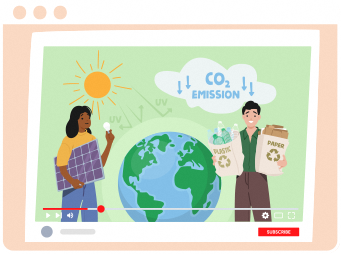
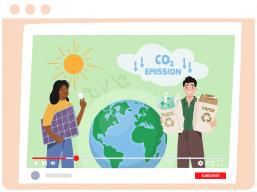
With youths increasingly interested in social issues (e.g. environmental, mental health), social media can be a valuable source of information on a wide range of topics, from news stories and current events to pop culture and fashion.
It provides them with a platform to participate more in community engagements and activities, deepen their understanding on issues concerning them, share their knowledge and views, and develop greater awareness of viewpoints beyond their own.
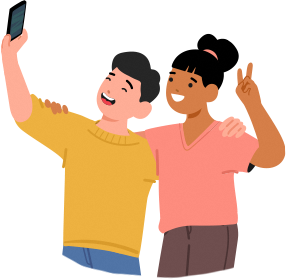

Social media can allow youths to express themselves freely and share their thoughts, feelings, creativity, and experiences with a broader audience. This empowers them to develop their skills and perspectives, receive validation, gain recognition, and build confidence, contributing to the development of their self-identity.
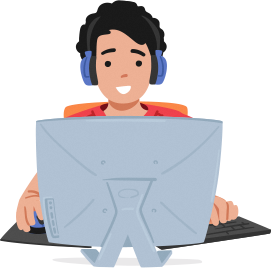
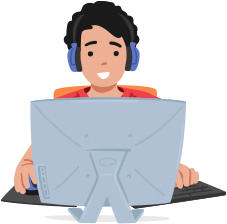
Social media is full of creative and engaging content such as videos, memes, and games. It can be a good alternative source of entertainment and relaxation for youths, providing them with a much-needed break at times.
What are some concerns with using social media?
While social media has its potential benefits, unregulated or unsupervised use can also increase your child’s risk of distress. As a parent, it is important to be aware of the potential risks so that you can better guide your child and help them to be safe and responsible as they interact on different social media platforms.

Some ways social media can negatively impact youths of today include:
On social media, people tend to show highly curated and idealised photos or videos of themselves. These may not be a true reflection of their daily lives. Constant exposure to such content can make youths feel bad about themselves as they struggle to meet such unrealistic standards. This effect is known as ‘upward social comparison’.
Both international and local studies show a relationship between social media use and youth mental health, with excessive social media use leading to lower body image satisfaction, reduced self-esteem, and increased levels of social anxiety.
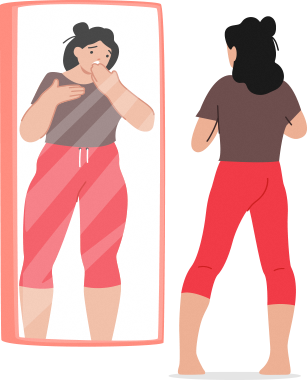

Youths may have more difficulty disengaging from social media at night due to the Fear-Of-Missing-Out (FOMO), a feeling of anxiety they may have when they believe that others are experiencing something interesting or exciting without them. This may result in them using social media late into the night to keep up with what is being shared by their friends and thus getting insufficient sleep.
When youths do not get sufficient sleep, it may increase their risk of experiencing anxiety and depressive symptoms.
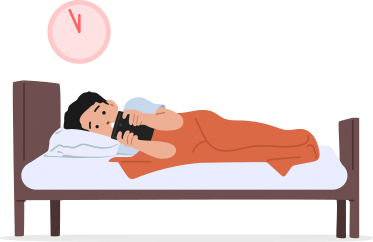
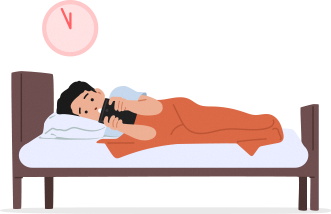
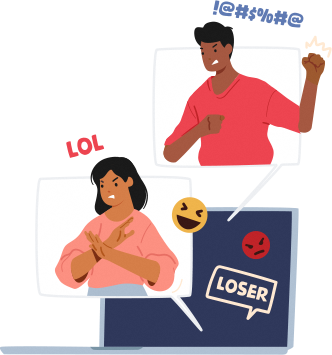
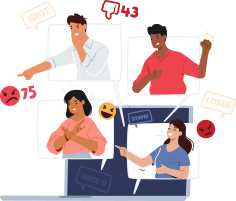
Social media can facilitate cyberbullying as being behind a screen makes it easier for cyber bullies to hide their identities and exploit anonymity to hurt their victims through various means (e.g. sharing posts, commenting, and direct messaging). This exposes youths to the risks of being cyberbullied.
As cyberbullying contributes to significant psychological distress in youths, being a victim of cyberbullying can result in poor mental health, increased emotional stress, social anxiety, and even symptoms of depression.

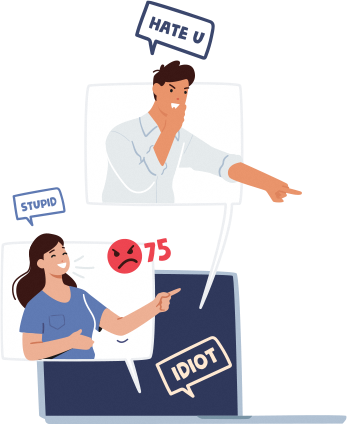
If your child is facing psychological or emotional distress from receiving mean comments or being cyberbullied, communicating well with your child can assure them that they are not alone and have a good support network they can depend on.
Encourage them to not give up, press on for what they believe in, and to bring about the positive change they want to see online. For example, they can use T.H.I.N.K. and S.U.R.E. to reflect on how they can contribute towards creating a safe and caring online community.

Creating a positive presence online using T.H.I.N.K. and S.U.R.E.

Guiding your child in managing negative comments and cyberbullying
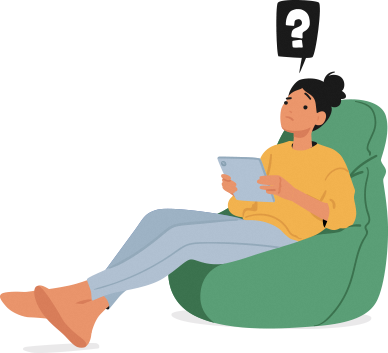
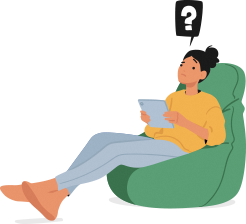
Social media platforms often use algorithms to personalise experiences by amplifying users’ behaviour patterns and showing them content that they enjoy.
This can get users stuck in a , where they only see content that aligns to their interests, values, and beliefs, and may result in the creation of an .
Due to the lack of alternative perspectives and information, youths who are unknowingly trapped in a filter bubble may not develop a balanced worldview that is needed to help them make responsible and informed decisions.
In addition, some users may engage in doomscrolling which is the act of spending an excessive amount of time online scrolling through negative news or social media posts, resulting in limited perspectives and causing increased .

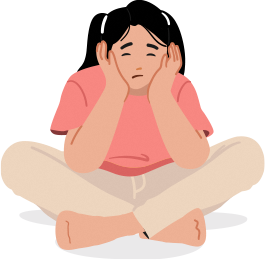
Social media has a greater impact on those with existing mental health struggles.
For example, some content may reinforce negative feelings of self-worth for users who are already struggling with their own body image or have unhealthy attitudes towards eating. Other content may result those struggling with depression to feel even more down about their lives after seeing the seemingly perfect lives of their friends

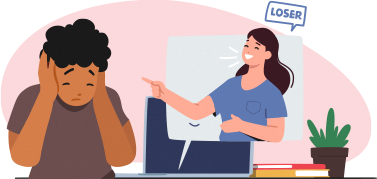
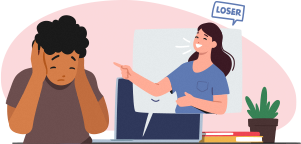
As a parent, it is critical to look beyond the amount of time your child is spending on social media and try to understand their actions and experiences. Be mindful that they may have had negative experiences, such as receiving mean comments online or being cyber bullied.
There is also a growing concern of youths turning to social media for self-diagnoses, where they identify with symptoms of a condition (particularly related to mental health), and diagnose themselves with having that condition.
Such misinformation can be concerning and may lead to them seeking out intervention which they do not require.
An echo chamber describes an environment where users only encounter information or opinions that reflect and reinforce their own.
A polarisation of views occurs when people who hold differing opinions get divided into contrasting groups based on their views. The views they hold drive these groups further apart over time through personal attacks towards each other.
Unlock tailored tips on supporting your child!
Get access to expert-backed tips to better support your child in this digital age.
Track your progress and explore helpful content — we're here to support you every step of the way.

